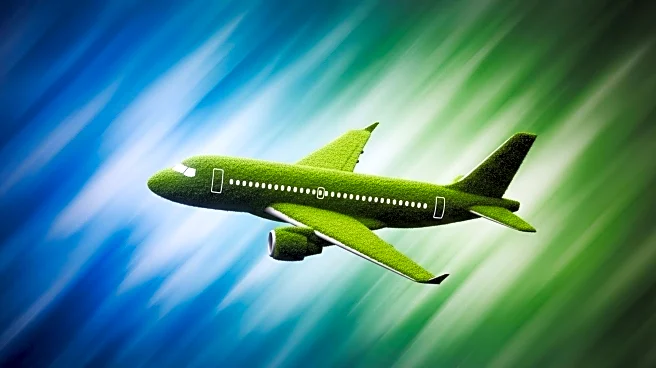What's Happening?
Icelandic budget airline Play was due to settle a carbon emissions bill of over 1.6 billion ISK the day after it ceased operations. The bill is linked to the EU-wide emissions trading system, which requires airlines to buy carbon credits to offset emissions. Play produced approximately 165,000 tonnes of carbon dioxide in 2024, and the deadline for settling the emissions was just one day after the airline announced its closure. The Environment Agency of Iceland noted that missing the deadline incurs a penalty of €100 per tonne, adding to the standard carbon cost. Play had received some free allowances but still faced a significant payment.
Why It's Important?
The collapse of Play and its subsequent carbon bill highlight the financial challenges faced by airlines in meeting environmental regulations. The airline's inability to pay the bill underscores the economic pressures of the aviation industry, particularly in adhering to emissions trading systems. This situation may impact future airline operations and environmental policies, as it demonstrates the financial risks associated with non-compliance. The event also raises questions about the sustainability of budget airlines and their role in contributing to greenhouse gas emissions.
What's Next?
The future of Play's unpaid carbon bill remains uncertain following its abrupt collapse. The airline's financial difficulties may lead to legal proceedings or negotiations with creditors. The situation could prompt discussions among industry stakeholders about the feasibility of emissions trading systems and the need for support mechanisms for struggling airlines. Additionally, environmental agencies may review their enforcement strategies to ensure compliance without causing undue financial strain on companies.
Beyond the Headlines
The Play incident highlights the broader issue of aviation's environmental impact and the challenges of decarbonizing the industry. It raises ethical questions about the balance between economic viability and environmental responsibility. The case may influence public policy discussions on sustainable aviation practices and the role of government in supporting airlines through transitions to greener operations.










